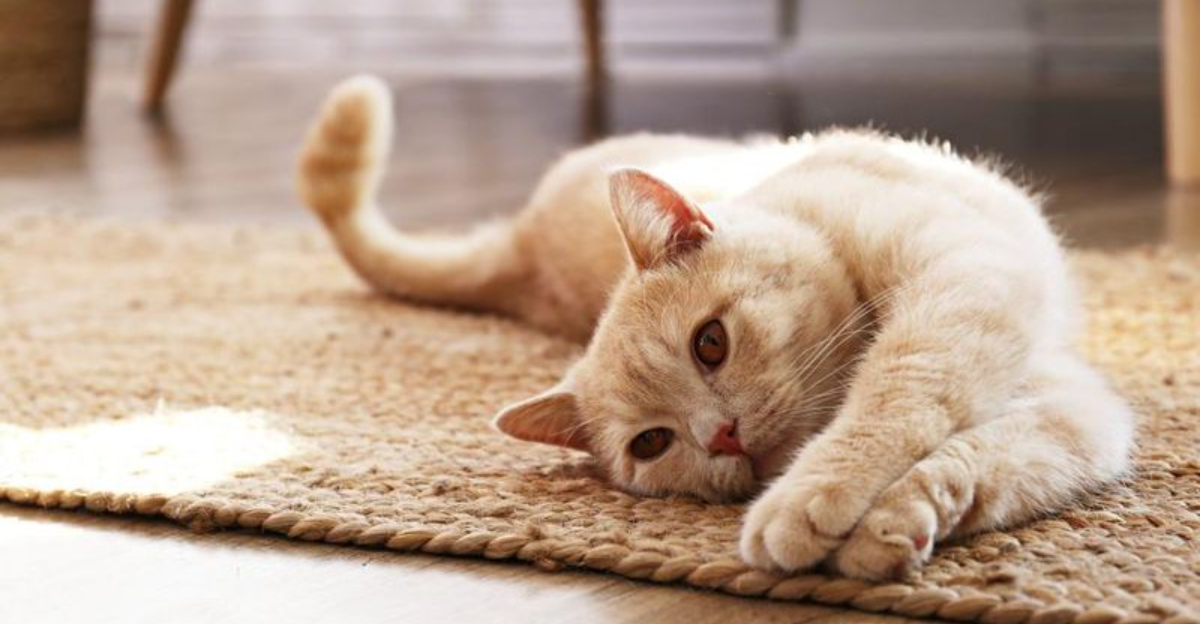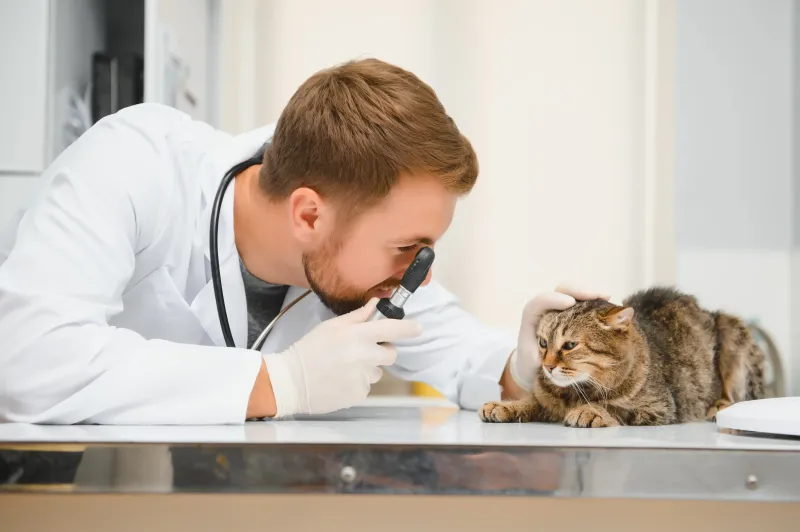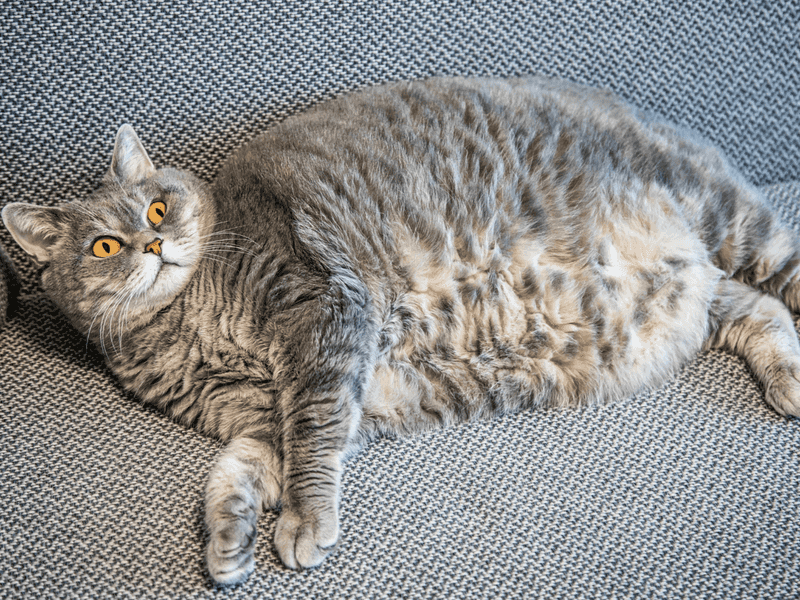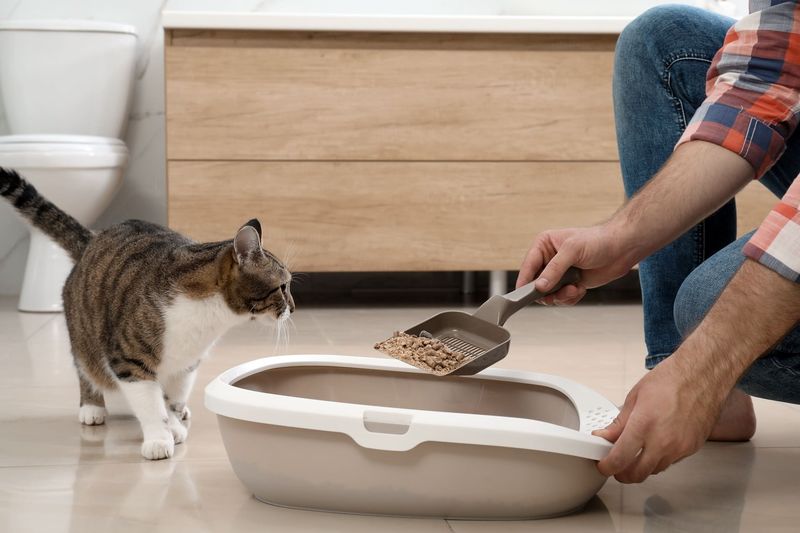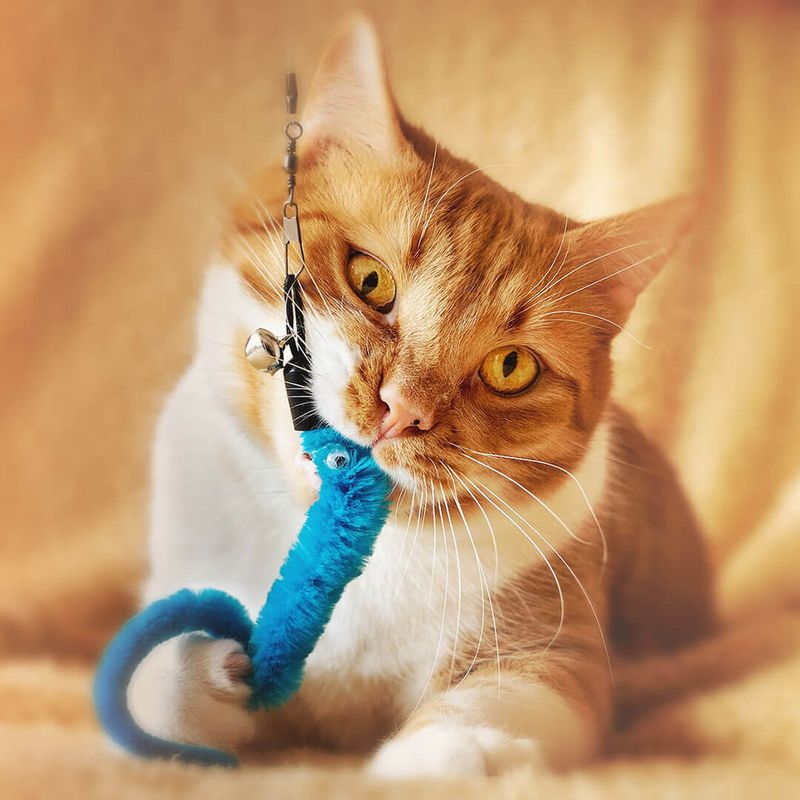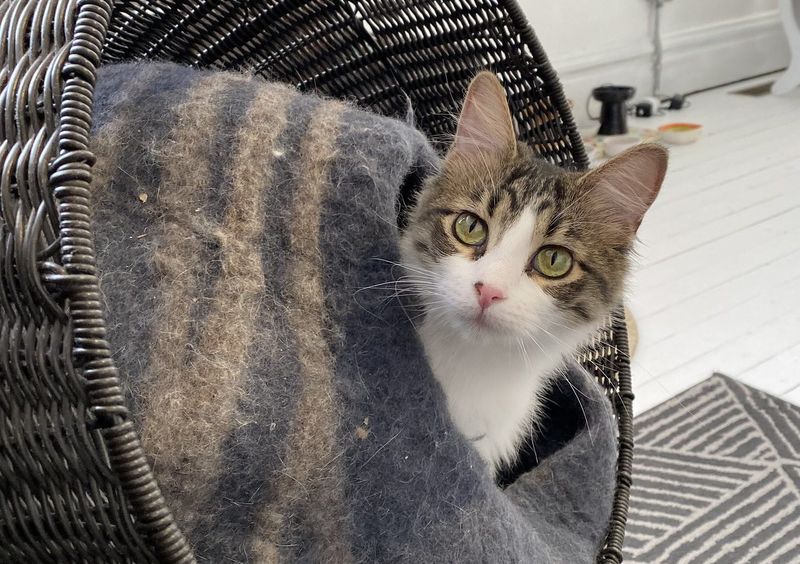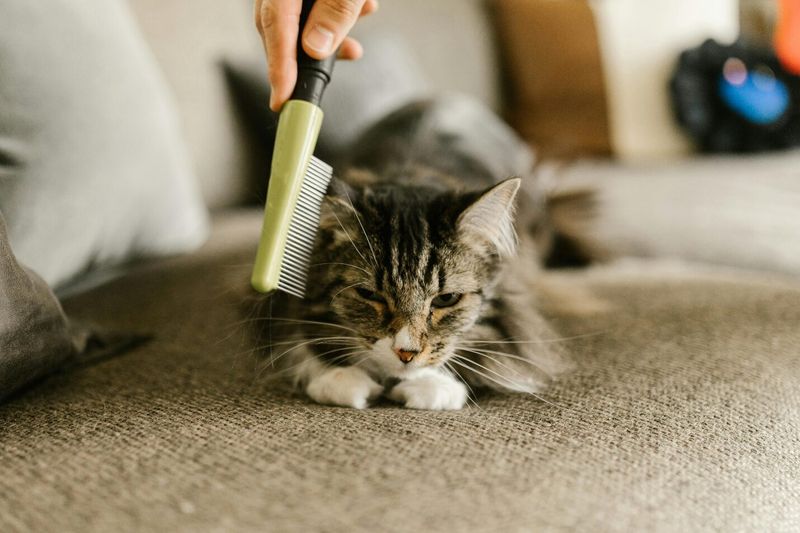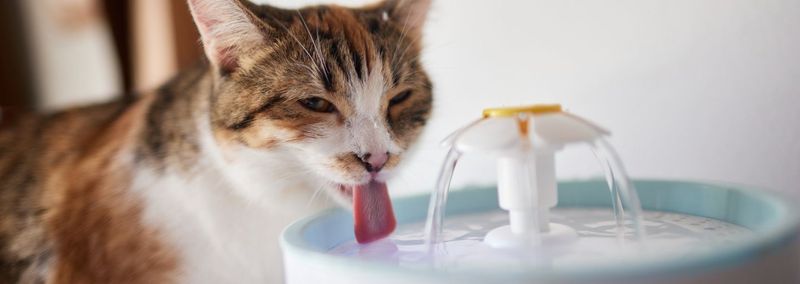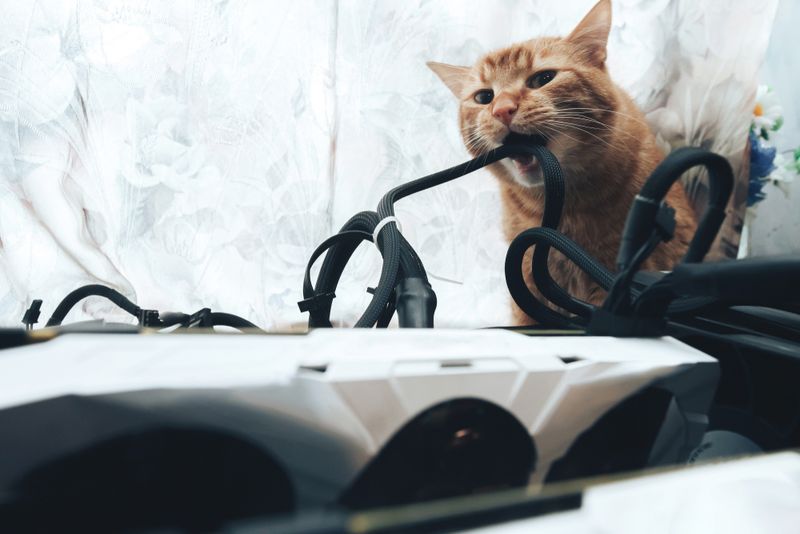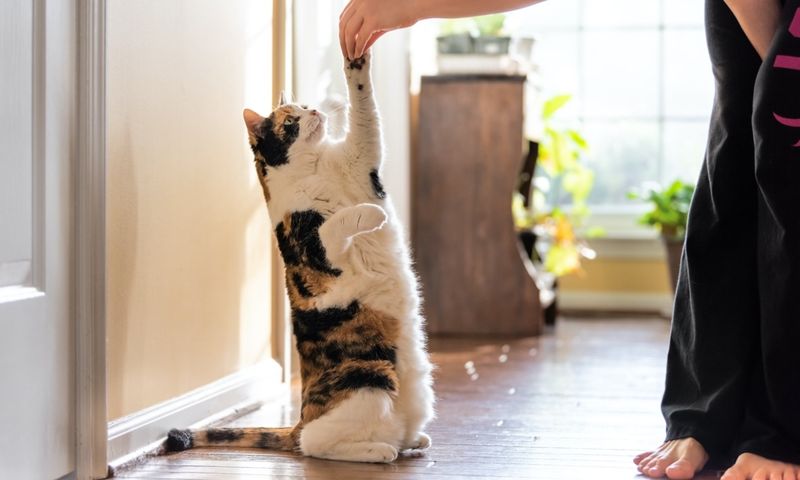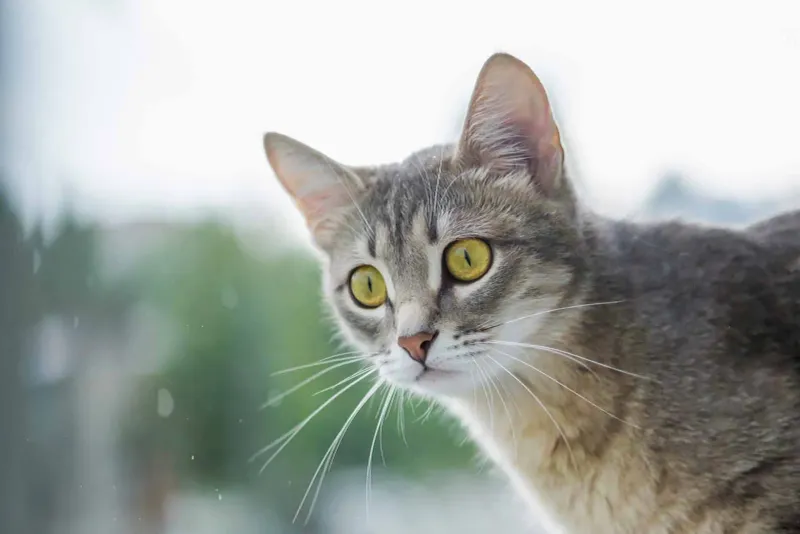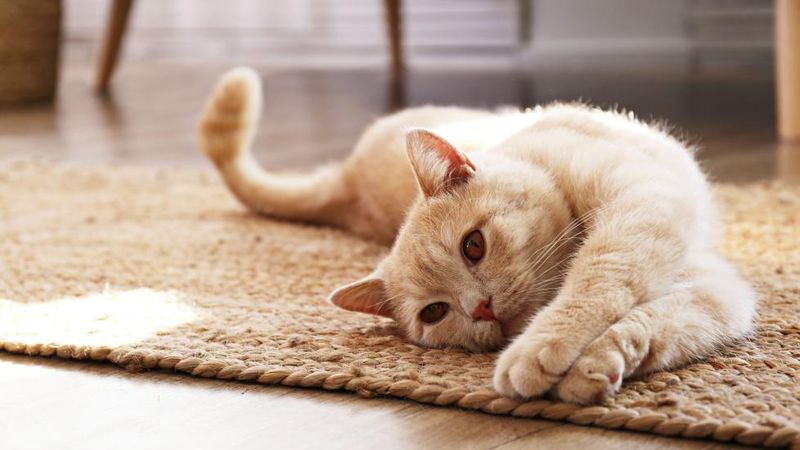📖 Table of Content:
- 1. Ignoring Regular Vet Visits
- 2. Overfeeding and Obesity
- 3. Neglecting Litter Box Maintenance
- 4. Disregarding Mental Stimulation
- 5. Lack of Socialization
- 6. Ignoring Grooming Needs
- 7. Not Providing Enough Water
- 8. Forgetting to Pet-Proof the Home
- 9. Assuming Cats Don’t Need Training
- 10. Underestimating the Need for Routine
- 11. Not Recognizing Illness Symptoms
- 12. Misunderstanding Cat Body Language
Cats bring warmth, charm, and companionship into a home, but caring for them requires awareness and consistency. Even the most well-meaning cat owners can make small mistakes that affect a pet’s comfort and health. These oversights often stem from a misunderstanding of feline behavior or needs.
Simple habits—like choosing the wrong litter box placement or neglecting enrichment—can have a bigger impact than expected. Cats are sensitive creatures, and their well-being depends on both their physical and emotional environment. Recognizing potential issues early on helps prevent stress and unwanted behaviors.
By identifying the most common missteps in cat care, it becomes easier to create a supportive and balanced routine. A few thoughtful adjustments can improve a cat’s quality of life considerably. Understanding their needs lays the foundation for a long, healthy, and happy companionship.
1. Ignoring Regular Vet Visits
Routine veterinary care plays a vital role in ensuring a cat stays healthy. Some owners assume indoor cats are less at risk and delay visits. Unfortunately, many health issues aren’t visible until they’ve progressed.
Moreover, vaccines and dental checks are essential in preventing common health issues. Ensuring your cat sees the vet at least once a year can add years to their life.
Don’t wait for your cat to show distress—be proactive in their health care. This small action can lead to a happier and healthier cat, thriving in your home.
2. Overfeeding and Obesity
Cats are creatures of habit, and overfeeding is a common issue. Many owners equate food with love, leading to overindulgence. This can result in obesity, which poses serious health risks such as diabetes and arthritis.
Implementing portion control and providing a balanced diet are steps towards a healthier cat. Regular play can also help maintain their ideal weight.
By understanding your cat’s dietary needs and resisting the urge to offer extra treats, you contribute to their overall well-being, ensuring they remain active and lively.
3. Neglecting Litter Box Maintenance
A clean litter box is vital for your cat’s comfort. Neglecting this can lead to inappropriate elimination, where your cat chooses other spots in your home. This is often a sign of dissatisfaction with their bathroom situation.
Scoop the litter daily and change it regularly to keep it fresh. Consider the location of the box, ensuring it’s in a quiet yet accessible spot.
Your cat is more likely to use a clean, well-maintained litter box, making your home a happier place for both of you.
4. Disregarding Mental Stimulation
Mental stimulation is as important as physical health for a cat. Many owners underestimate the need for environmental enrichment, leading to boredom and destructive behavior.
Providing engaging toys and interactive play sessions can fulfill their natural instincts. Puzzle feeders and climbing structures also offer great mental workouts.
Keeping your cat mentally active prevents behavioral issues and contributes to their overall happiness. A stimulated cat is a content cat, enjoying life to the fullest.
5. Lack of Socialization
Helping a cat feel comfortable around others starts with early and consistent socialization. It’s a step some owners skip, assuming indoor cats don’t need it.
Encouraging gentle interactions and exposing your cat to various environments can build confidence. Patience is crucial, as each cat adjusts at their own pace.
By fostering positive experiences, you help your cat become more sociable and less stressed in different situations. This enhances their quality of life and strengthens your bond with them.
6. Ignoring Grooming Needs
While cats are natural groomers, they still require some assistance, particularly long-haired breeds. Failing to groom them regularly can result in mats and skin problems. Brushing your cat frequently helps minimize shedding and keeps them more comfortable.
Establish a grooming routine that suits your cat’s coat type. Make it a bonding experience rather than a chore.
Attending to your cat’s grooming needs not only keeps them looking good but also enhances their health and happiness, ensuring they feel their best every day.
7. Not Providing Enough Water
Hydration is crucial for a cat’s health, yet many owners overlook it. Cats often don’t drink enough water, leading to urinary and kidney issues. Always provide fresh water to encourage proper intake.
Consider using a water fountain, as many cats prefer running water. This simple change can significantly increase their consumption.
By ensuring your cat stays hydrated, you support their health and prevent future problems. A well-hydrated cat is more energetic and joyful, ready to explore their world.
8. Forgetting to Pet-Proof the Home
As natural explorers, cats are always looking for new areas to investigate, but homes can contain unexpected hazards.
Secure loose cords, remove toxic plants, and ensure windows are safe. These precautions keep your adventurous feline safe from harm.
Creating a secure environment allows your cat to explore without risk, providing peace of mind for both you and your furry friend. A safe home is a happy home, fostering a carefree and playful atmosphere.
9. Assuming Cats Don’t Need Training
Many believe cats are untrainable, but this is a myth. Ignoring training can lead to undesirable behaviors like scratching furniture.
Positive reinforcement and consistency can guide your cat toward better habits. Introduce scratching posts and reward good behavior with treats.
Training enriches your cat’s life, making them more adaptable and well-mannered. It’s never too late to start teaching your feline friend, transforming them into a delightful companion.
10. Underestimating the Need for Routine
A consistent routine is vital for cats, and deviations can cause unnecessary stress. Unintentional changes to their daily schedule may lead to anxiety and unease.
Maintain consistency in feeding, play, and sleep times to provide stability. This helps your cat feel secure and reduces stress-induced behavior.
By understanding and respecting your cat’s need for routine, you create a harmonious home environment. A predictable routine makes your cat feel safe and loved, enriching their life.
11. Not Recognizing Illness Symptoms
Felines are skilled at masking their ailments, making it easy for owners to overlook the early signs of illness. Changes in appetite, grooming, or litter box habits may point to underlying health concerns.
Observing your cat’s behavior and seeking veterinary advice when something seems off is crucial. Early detection can make a significant difference in treatment outcomes.
Being vigilant about your cat’s health ensures they receive the care they need, enhancing their quality of life and longevity. A watchful eye can make all the difference.
12. Misunderstanding Cat Body Language
Understanding cat body language is essential for effective communication. Many owners misinterpret signals, leading to stress or fear in their cats.
Recognize signs of contentment, fear, or aggression to respond appropriately. This strengthens your bond and creates a more harmonious relationship.
By learning to read your cat’s cues, you can cater to their needs and foster a trusting environment. This mutual understanding transforms your home into a sanctuary for your feline friend.
